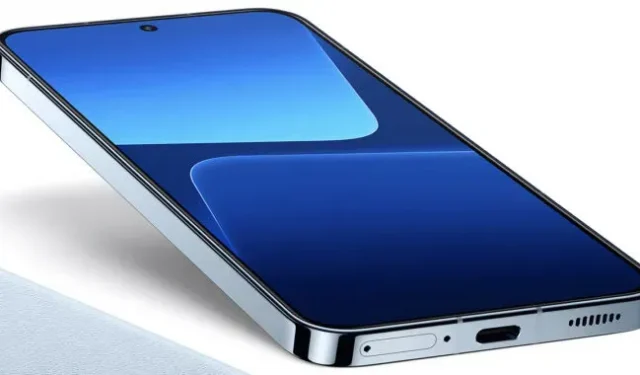The new Xiaomi phone, as usual, is inspired by Apple

It’s only 2022, but that doesn’t stop Android makers from releasing their big flagship phones that will be on sale for most of next year. After launching Vivo last month, the new OEM to launch a phone with the new Qualcomm Snapdragon 8 Gen 2 SoC is Xiaomi, simply called Xiaomi 13 and Xiaomi 13 Pro. The two models are large (6.73 inches) and small (6.36 inches) phones with different designs.
The smaller phone is more interesting because – hey, look, it’s an iPhone! Xiaomi loves to copy Apple, and with the flat perimeter strip and square camera block, it’s hard to see the Xiaomi 13 as something other than an iPhone. It looks much better than the curved sides of the Xiaomi 13 Pro, but that’s only because the iPhone’s flat sides look good too. (I’m still shocked that no Android OEM has yet copied the dynamic island.) The larger “Pro”model looks more like an overall Samsung-style design, with curved screen edges and a beveled ring around the phone. A distinctive design feature of the Pro model is the replacement of the glass back with a ceramic one.
Both phones get the new Snapdragon 8 Gen 2 SoC. It is a 4nm chip with ARM Cortex X3, two Cortex A715 processors, two Cortex A710 processors, and three Cortex A510 processors. As we said during the launch of the chip, this combination of four different core designs is a strange, non-standard layout designed to extend support for 32-bit systems for another year. ARM wants to kill 32-bit, but Qualcomm and Android aren’t ready yet.
As for other specs, the Pro has a 6.73-inch 120Hz OLED display with 3200×1440 resolution, while the junior model has a 6.36-inch 120Hz OLED display with 2400×1080 resolution. Both come with 8 GB or 12 GB of RAM and 128 GB, 256 GB or 512 GB of storage. The Pro model has a 4820mAh battery and 120W wired charging, while the base model has a 4500mAh battery and 67W charging. Both have 50W wireless charging, Wi-Fi 6E (sadly, no optional Wi-Fi 7 support on the Snapdragon 8 Gen 2), and IP68 dust and water resistance.
The camera array on both models is basically the same as the iPhone, but with a sharper grid, with one large lens covering all three cameras. There is a small dividing line between each lens which will hopefully stop the glare you can get from one large continuous piece of glass. The Pro model has a 50MP 1-inch Sony IMX989 sensor as the main sensor, as well as a 50MP wide-angle and 50MP telephoto lens. The non-pro model has a much smaller 1/1.49-inch sensor for the main camera, as well as a 10MP telephoto lens and a 12MP ultra-wide lens.
These phones will never reach the US market, but they are usually released in Europe. They are in China for now, starting at 3999 Yuan (~$573) for the Xiaomi 13 base version and 4999 Yuan (~$717) for the Pro model.
Leave a Reply